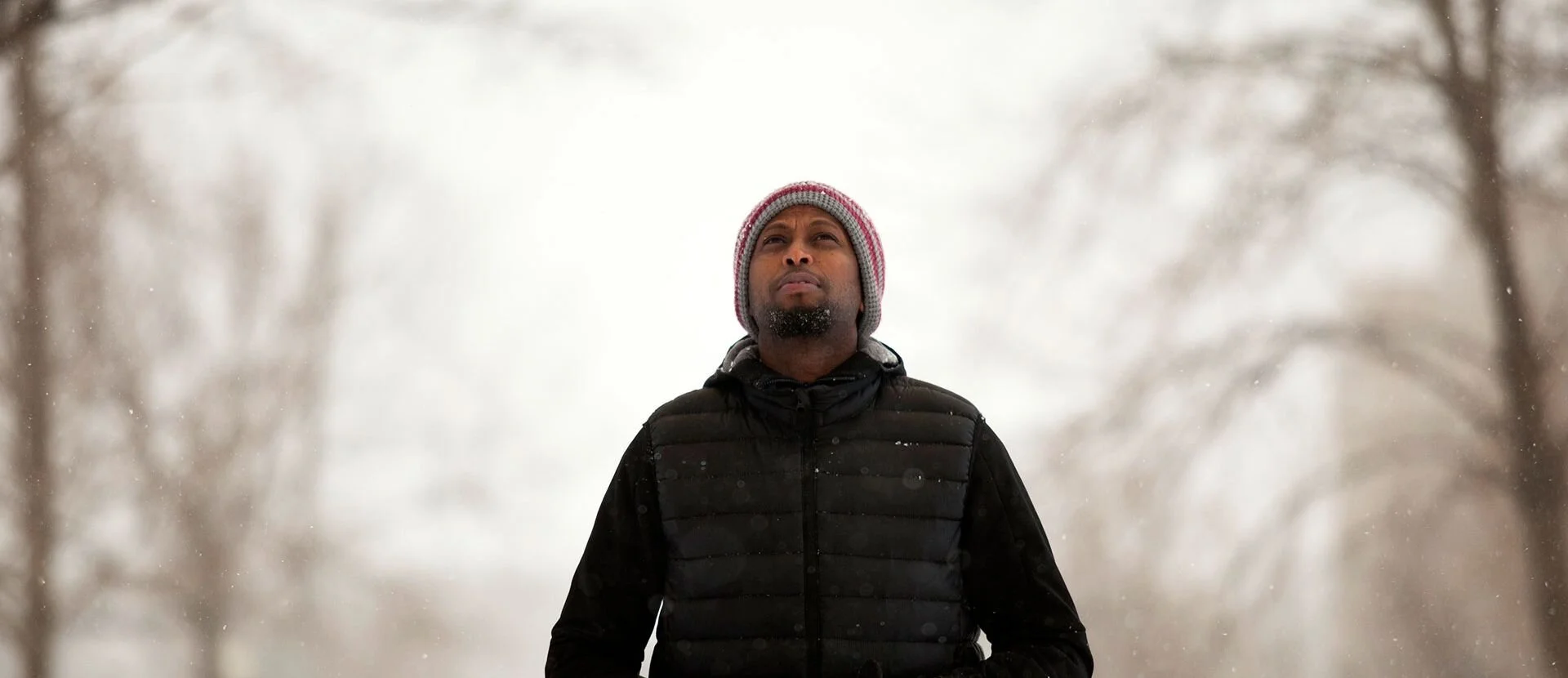'Accept the Call' shows Somali father wrestling with his American son's radicalization
A still image from the film showing Yusuf Abdurahman.
(REVIEW) “Accept the Call,” which premiered on PBS on Martin Luther King Day, is a chilling documentary about the plight of a father whose 19-year old son became radicalized and tried twice to join ISIS. Twenty-five years ago, Somali-born Yusuf Abdurahman fled the civil war raging in Somalia to settle as a refugee in Minnesota. Yusuf is a poster-child for Muslim immigrant assimilation. He works hard, devoting himself fully to his eight children and community.
Yusuf is baffled by his son’s alienation from American society. Yusuf feels nothing but gratitude for the country that gave him a chance to reconstruct his life out of the ashes. Yusuf practices a tolerant, mystical form of Sufi Islam that is deeply rooted in Somali culture and is compatible with pluralism and democracy. When Zacharia was 13 years old, religious differences between Yusuf and his wife, who practices a rigid Salafist brand of Islam, led to the dissolution of their marriage. Yusuf, nevertheless, remained deeply involved in his children’s lives.
Yusuf’s oldest child, Zacharia, is loved by his parents and had lived a largely unremarkable life until he was recruited into an Islamist cell group. Yusuf’s desperate attempt to understand his son’s actions leads him to a surprisingly clear-eyed view of his son’s predicament. The film centers on conversations Yusuf has with his son on the phone from federal prison. The film is punctuated by automatic voices prompting Yusuf to “accept the call” from Zacharia. The title “Accept the Call” also refers to Zacharia’s attempts to join ISIS.
In the film’s most poignant moment, Zacharia tells his father that he became vulnerable to radicalization following his parents’ divorce. “I felt that you as father didn’t like us,” he said. “It left a scar. It enraged me . . . My thoughts and feelings were blocked off.” In this distressed mental state, Zacharia and his co-defendants “became super tight . . . We became a family for ourselves.”
Singaporean journalist Eunice Lau is uniquely positioned to make a film of this subtlety. Lau is a former broadcast journalist who went to Somalia in 2011 to film a documentary about the Somali civil war. Lau’s knowledge of Somalia enabled her to gain the confidence of Yusuf and his family.
One strength of the film is that it does not gloss over the problems in the Somali community that may encourage terrorism. Whereas most American Muslims are thriving in the United States, Somali Muslims in Minneapolis are faring poorly. They are ghettoized, with low levels of educational achievement and high levels of unemployment. The insular Somali Cedar-Riverside neighborhood in Minneapolis has an unemployment rate of 17 percent, compared with four percent in the city overall. Hundreds of teenage boys in Cedar-Riverside are caught up in gang activity. Mosques, which provide an antidote to gangs, often indoctrinate these kids in a cultic, extremist brand of Islam.
Whereas Zacharia’s sister Ikraan sees her brother’s plight as a simple matter of FBI entrapment, Zacharia’s father places most of the blame for his son’s arrest on the Wahhabi ideology that encourages hatred of the West and segregation from American society.
“Somalia was originally a Sufi country,” Yusef says. The Saudis have flooded American mosques with inflammatory and hate-filled literature that is wresting Somalis away from their own peaceable traditions and making them vulnerable to violent jihad.
Yusuf’s distress over his son’s arrest leads him to try to educate Somalis about the dangers of Wahhabism. When he tries to pass out anti-terrorist leaflets in front of Minneapolis mosques, mosque-goers accuse him of being a heretic and a traitor. “We have a problem,” he says, “and the Somali community is denying this stuff.”
“Accept the Call” is a brilliant meditation on an alarming trend that is plaguing Muslim communities throughout the world. It also raises disturbing questions about immigrant assimilation and about the FBI’s counter-terrorism tactics in Muslim neighborhoods, which border on entrapment. But what makes this film accessible to a national audience that is unfamiliar with Islam or with Somalia is that it is structured around a father-son relationship. Radicalization can happen in any family, and Yusuf’s pain echoes the pain of any parent whose child has been brainwashed by a cultic and destructive ideology.
Dr. Robert Carle is a professor of theology at The King’s College in Manhattan. Dr. Carle has contributed to The American Interest, The Wall Street Journal, Newsday, Religion Unplugged, Society, Human Rights Review, The Public Discourse, Reason, and Academic Questions.

